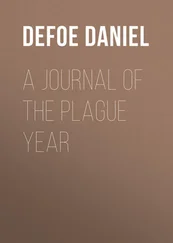“I don’t do well if I don’t have something to do,” he said. “Or something in my hands.”
“You should work with wood,” Siddhu suggested.
Horne-Bough’s eyes flashed then dimmed. “Except that I’m so absent-minded, I’d lose a finger.”
“Better yet,” Siddhu said, palming the yo-yo, “you should get one of these.”
He let the yo-yo slide out between their two stools at the bar.
“I love how it whirs,” Horne-Bough said, his eyes following the yo-yo. “That sound is wonderful.”
Like the mayor, this spindly young entrepreneur was fascinating to Siddhu. Horne-Bough was not the stingy kind of rich person, nor was he oblivious to cash. He saw money not as lifeblood but as a social lubricant. “Contrary to what you newsmen think, I want to pay for content,” Horne-Bough told him. “Maybe not a unionized shop, but wages and benefits and options.” His model was not just click-driven, but also used a subscription/patronage model from individual subscribers and institutions. GSSP’s initial staff included a couple of Siddhu’s ex-colleagues, including a formerly fresh-faced investigative reporter who’d been laid off before he could qualify for a buyout. Another staffer was a journalism grad who used to work as the mayor’s executive assistant and knew where he did his dry cleaning. “The city has grown enormously in the past decade in terms of wealth. There are people willing to pay top dollar for the best cars and food and sunglasses and ski chalets. There’s no reason why they wouldn’t want to pay more for the best news coverage. There are no better circumstances for this model to flourish.”
GSSP saw itself not only as a reporting service but a private knowledge hub, a “data concierge” for the wealthy. Horne-Bough was certain people would pay a four-figure annual subscription for, among other things, a phone number that got them a cab five minutes earlier. “Everyone else will get the news for free, but there will be a time lag—sometimes a day, sometimes fifteen minutes,” Horne-Bough suggested. “Others will still get news free before your paper can give it away. But those who have paid will have a piece of—you guessed it—gossip.”
Between their two tasting flights, Horne-Bough checked text messages on a 2007-era vintage flip phone. He’d explained he liked older technology—not as a conversation piece but because it reduced the time he spent not focusing on his present surroundings, yet he checked it and set it aside several times throughout their conversation. This time, though, he gaped at the phone. After a prolonged silence, he signalled to the waiter for a bill.
“It contradicts our workplace culture to leave a drink for the office, but this one is big,” he told Siddhu. “I need to write this story and get it out there. I won’t even have time to use my electric typewriter.”
“What is it?” Siddhu asked. He added, “I can keep a secret.”
Horne-Bough hesitated. The World Health Organization, in dialogue with Vancouver Coastal Health, had recommended a city-wide quarantine. The announcement would come quickly and leave people with the least amount of time to flee. The city wanted to avoid the situation that had occurred in Surat, India in 1994, when the disease struck and three hundred thousand people evacuated the city in fear of being quarantined.
Flights coming into the city were being rerouted. Roadblocks would be erected on all highways and bridges to the metro area within an hour. “You live in the boonies, don’t you? I figure you should get a head start,” he said, reaching for a wallet that was stuffed with hundred-dollar bills. Horne-Bough, whose loft was only steps away in Railtown, preferred cash because he’d lost his wallet too many times to use plastic. He carried no ID for the same reason.
Siddhu began to run toward the nearest SkyTrain station. He was not physically fit, so he found himself staggering at the foot of Water Street. The city scene outside, give or take a few face masks, could have passed for any day in the past decade. The sun beat down benevolently, and the air was worth paying money to breathe. He swiped his Compass Card as he rushed through the SkyTrain gates, then ran down the steps to catch the incoming train. He was huffing and puffing when he took his seat.
The crowd on the half-full SkyTrain car was occupied by commuters who were bored, jovial, or solitary. There was a couple in their twenties making out, an extremely tall cyclist in spandex with his racing bike, one guy singing along to music with his eyes closed. He recognized a face or two: people he didn’t know, but who, like him, rode this train until its terminal point in Surrey. They had fit themselves snugly into their compartments of private space, pressed against window seats, their briefcases and purses on their laps.
He checked his phone for news coverage as the car slowed into Burrard Station. Nothing. He texted his wife to say that he was coming home. She texted back to ask him to buy string cheese. He checked his phone again. Nothing on his paper’s app or website. It occurred to him that this had been a prank and he was rushing home based on misinformation. Siddhu told himself that this could not happen. At Stadium-Chinatown station, a two-sentence item appeared on Horne-Bough’s website. When they stopped outside Science World, he received two calls from his paper’s editor-in-chief. He left them unanswered and the voicemails unopened.
On social media, there were unofficial reports about the roadblocks and the airport closure. By the time they reached the Commercial-Broadway Station, the SkyTrain had started to fill. Siddhu gave up his seat to a pregnant woman. People pushed into the car, their faces red from running and squeezing. Heads remained bowed toward their devices, and thumbs tapped screens to refresh web browsers. People whispered to one another, looking out from the corners of their eyes.
At the Joyce-Collingwood Station, the last one before they crossed city limits, Siddhu had a sense of what it might be like to commute in Tokyo or Shanghai. Many passengers who stood could no longer hold onto a strap or rail or pole. They propped themselves against other commuters desperate to get home. They still held phones up to their faces, sometimes pressed to their cheeks. They tapped and tapped.
When the train left the station, the suburbanites in the car heaved one collective sigh. When the automated voice, heralded by the ubiquitous three-toned chime, announced the next stop to be Metrotown, Siddhu heard cheers. The city limits came within sight as their train began to slow down. Siddhu waited for it to halt, but he still felt surprised. Groans flushed out the sighs. The mood spoiled. Siddhu heard someone complain that they had trouble breathing.
Five minutes passed. They began to move again. Those who were standing wilted as the car inched in the opposite direction. Everyone was quiet. They were going back into the city, back toward death. Siddhu expected an announcement over the PA system, but all he heard was the chime followed by the pre-recorded voice announcing the next stop, Joyce-Collingwood Station.
The train thinned out, more or less in the same order, with people returning to their offices and workplaces. Siddhu got off behind the man in spandex rolling his bike. He wanted to completely reverse his course and go back to his stool at the gastropub. He sent Uma a terse text message and called his boss to say he was returning to the office. Night swallowed the skyline, and the city became busier. All around were people who looked like Siddhu: stunned, moving uneasily, moving because they would look crazy if they just stood there.
It is now difficult to recall our bafflement in those first forty-eight hours. Up came barbed wire fences and outposts manned by camouflaged men in body armour with assault rifles. Only essential products, groceries, and medical supplies were allowed in after being screened by security officers with dogs. Dystopias were evoked, liberally. Friends and family from “outside” shared our alarm, but we resolved our cognitive dissonance at every turn. We drove our children to school and scraped our plates into the compost (picked up by sanitation staff in hazmat suits). Our devotion to routine was how we sought comfort in the moments after the hot flare of annoyance tapered into disquiet—when we noticed, say, a co-worker absent from a meeting. Or when we saw entire aisles in markets picked clean.
Читать дальше












